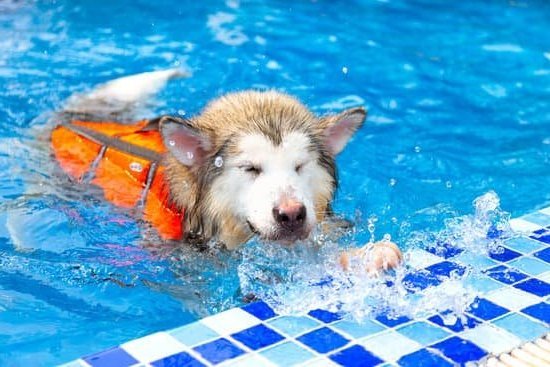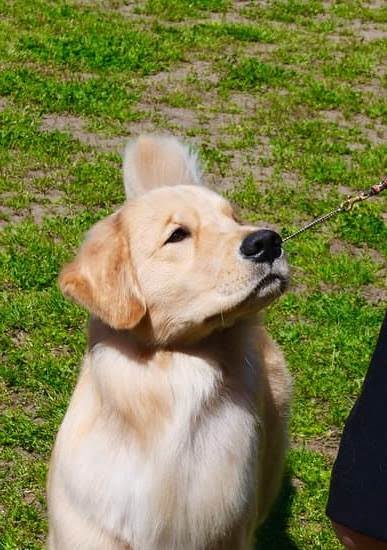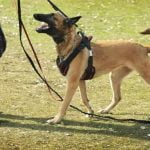Maltese dogs are known for their playful and affectionate nature, making them popular companions for many pet owners. However, potty training can be a challenge for some Maltese owners. Potty training is an essential part of owning a dog, ensuring a clean and comfortable environment for both the pet and its owners. In this article, we will explore the unique traits of the Maltese breed and provide valuable insights into potty training these adorable but sometimes stubborn dogs.
The Maltese breed is characterized by its small size, long white coat, and gentle demeanor. Known for their lively and energetic personality, these dogs can make excellent pets for families and individuals alike. However, when it comes to potty training, Maltese dogs may present certain difficulties due to their independent streak and strong-willed nature.
Successfully potty training a Maltese dog requires an understanding of their specific behavioral traits and unique challenges that come with this particular breed. In the following sections, we will delve deeper into the characteristics of Maltese dogs and explore effective strategies for addressing potty training issues.
Understanding the Maltese Breed
The Maltese breed is known for their small size, playful personality, and beautiful white coat. These dogs are affectionate, lively, and thrive on companionship, making them wonderful pets for many households. However, their lovable nature does not exempt them from the challenges of potty training. Maltese dogs have a reputation for being difficult to potty train due to their stubbornness and independent streak.
In addition to their temperament, there are several behavioral traits specific to the Maltese breed that can make potty training a bit more challenging. For instance, Maltese dogs tend to be sensitive and may become anxious or stressed in certain situations, which can affect their ability to focus on potty training. Furthermore, they are known for being quite vocal and may communicate through barking or whining when they need to go outside, rather than simply waiting patiently by the door.
The small size of the Maltese breed also contributes to some of the difficulties in potty training. Their tiny bladders mean that they may need to go outside more frequently than larger breeds, requiring attentive and consistent training efforts from their owners. Despite these challenges, with the right strategies and techniques, it is possible to successfully potty train a Maltese dog and establish good habits for the long term.
| Maltese Dog Characteristics | Challenges in Potty Training |
|---|---|
| Sensitive nature | May become anxious or stressed during training |
| Vocal communication | May bark or whine instead of waiting patiently |
| Small bladder size | Require more frequent potty breaks |
Challenges of Potty Training Maltese Dogs
Understanding the unique challenges of potty training Maltese dogs is crucial for pet owners who are struggling with this task. Despite being a beloved breed known for their affectionate nature, Maltese dogs can present specific difficulties when it comes to potty training.
Small Bladder Size
One of the main reasons why potty training Maltese dogs can be challenging is their small bladder size. Due to their petite build, Maltese dogs have limited bladder capacity, which means they may need more frequent potty breaks compared to larger breeds. Understanding and accommodating their need for frequent bathroom trips is essential for successful potty training.
Stubbornness
Maltese dogs are known for their independent and stubborn nature, which can make them resistant to potty training efforts. Their strong-willed personality may lead them to resist following commands or routines, especially when it comes to eliminating in designated areas. Patience and persistence are key when dealing with this characteristic during potty training.
Sensitivity to Environment
Another challenge when potty training Maltese dogs is their sensitivity to environmental changes. Certain factors such as noise, temperature, or unfamiliar surroundings can unsettle them and affect their bathroom habits. This sensitivity requires pet owners to create a calm and consistent environment for potty training, minimizing any potential stressors that could interfere with the process.
Understanding these specific challenges that are maltese dogs hard to potty train face can help pet owners develop effective strategies and approaches tailored to the needs of this breed. By addressing these challenges with patience and understanding, pet owners can improve the success rate of potty training their beloved Maltese dogs.
Tips for Potty Training Maltese Dogs
The Maltese breed is known for its small size, gentle demeanor, and beautiful white coat. These dogs are often sought after as loving companions, but one common concern for potential owners is their potty training behavior.
Many people wonder, “Are Maltese dogs hard to potty train?” The truth is that Maltese dogs can pose some challenges when it comes to potty training, but with the right techniques and understanding of the breed’s specific traits, successful potty training is definitely attainable.
Understanding the Maltese breed is essential when it comes to potty training. Maltese dogs are known for their intelligence and being eager to please their owners, which can work in your favor during training. However, they can also be quite stubborn at times, making consistent training essential. Their small size means that they have small bladders and may need more frequent bathroom breaks compared to larger breeds.
When it comes to potty training Maltese dogs, positive reinforcement techniques have been proven to be effective. This can include using treats or verbal praise when they successfully use their designated potty area. Consistency and patience are key components of successful potty training with any dog breed, including the Maltese. Creating a designated potty area in your home can also help reinforce good habits.
Some common mistakes to avoid when potty training a Maltese dog include punishing them for accidents and not being consistent with their training routine. It’s important to remember that accidents will happen during the learning process, so it’s best to remain patient and continue reinforcing good behavior. Understanding the specific needs and behaviors of the Maltese breed will also help you avoid pitfalls during the potty training process.
Common Mistakes to Avoid
When it comes to potty training a Maltese dog, there are common mistakes that pet owners should be aware of in order to effectively train their furry companions. Understanding the breed’s specific needs and behaviors is crucial in avoiding these pitfalls and achieving success in potty training.
Here are some common mistakes to avoid when potty training a Maltese dog:
- Punishing the dog for accidents: Maltese dogs respond best to positive reinforcement, so punishing them for having accidents can actually have a negative impact on their training. Instead, focus on rewarding good behavior and providing gentle redirection when accidents occur.
- Inconsistency in training: Consistency is key when it comes to potty training any dog, including the Maltese breed. Establishing a routine and sticking to it will help your dog understand where and when they should go potty.
- Neglecting their small bladder size: Maltese dogs have small bladders, which means they may need more frequent potty breaks compared to larger breeds. Being mindful of their bladder size and scheduling regular outdoor breaks can help prevent accidents indoors.
By avoiding these common mistakes and taking into account the unique characteristics of the Maltese breed, pet owners can set themselves up for successful potty training outcomes with their beloved canine companions. It’s important to be patient, consistent, and understanding of the specific needs of Maltese dogs in order to achieve effective potty training results.
Crate Training for Potty Training
Effective Method for Potty Training Maltese Dogs
Crate training is often recommended as an effective method for potty training Maltese dogs. This is because it taps into the instinct of dogs to keep their living space clean. By using a crate, you are essentially providing your Maltese with a den-like environment, which they will naturally try to keep clean.
Using a crate can also help in preventing accidents in the house when you are not able to directly supervise your Maltese. When done correctly, crate training can significantly speed up the potty training process and make it easier for your Maltese to understand where they should be eliminating.
Step-by-Step Guide to Crate Training
When crate training a Maltese for potty training, it’s important to start slow and make the experience positive for them. Begin by introducing your dog to the crate gradually, allowing them to explore it at their own pace. You can encourage them by placing treats and toys inside the crate to create a positive association.
Once your Maltese becomes comfortable with the crate, start incorporating short periods of confinement while you are at home. Gradually increase the time they spend in the crate, making sure to let them out for potty breaks and exercise. It’s important not to use the crate as a form of punishment, as this can create negative associations and hinder the potty training process.
Consistency Is Key
Consistency is key when using crate training for potty training Maltese dogs. Stick to a regular schedule for feeding, playtime, and potty breaks to help your dog understand when they should be eliminating. Over time, with patience and consistent reinforcement, your Maltese will learn to associate the crate as their safe place while also understanding where they should be going potty.
House Training and Schedule
When it comes to house training and creating a schedule for potty breaks, Maltese dogs are known to require a consistent and structured routine. Due to their small size, these adorable pets have smaller bladders, which means they may need more frequent bathroom breaks compared to larger breeds. It’s important for pet owners to understand the specific needs of Maltese dogs in order to establish an effective house training schedule.
To successfully potty train a Maltese dog, it’s crucial to incorporate regular potty breaks throughout the day. This includes taking them outside first thing in the morning, after meals, before bedtime, and several times in between. By sticking to a consistent schedule, pet owners can help their Maltese dogs develop good bathroom habits and minimize accidents indoors.
In addition to establishing a regular schedule for potty breaks, incorporating regular exercise and playtime is also beneficial for house training Maltese dogs. Physical activity not only helps stimulate their digestive system but also encourages them to relieve themselves outdoors. A combination of scheduled potty breaks and physical activity can greatly improve the success of house training these beloved pets.
| House Training Tips for Maltese Dogs | Description |
|---|---|
| Consistent Potty Breaks | Take your Maltese outside at regular intervals throughout the day to encourage good bathroom habits. |
| Regular Exercise | Incorporate daily walks and playtime to stimulate their digestive system and promote outdoor elimination. |
Seeking Professional Help
Maltese dogs are known for their intelligence, affectionate nature, and playful personality. However, when it comes to potty training, many pet owners find it challenging to train their Maltese dogs. This breed can be stubborn at times, making them a bit difficult to potty train. Additionally, Maltese dogs have small bladders, which means they may need more frequent potty breaks compared to other breeds.
If you find yourself struggling with potty training your Maltese dog, seeking professional help may be the best option. A professional dog trainer or behaviorist can provide valuable guidance and assistance in addressing your Maltese’s specific potty training needs. They have the expertise and experience to tailor a training program that suits your dog’s unique personality and behavioral traits.
Professional trainers can also help you understand the underlying reasons behind your Maltese dog’s potty training difficulties. Whether it’s due to anxiety, fear, or simply stubbornness, a professional can provide insights into addressing these challenges effectively.
While some pet owners may feel discouraged or overwhelmed by the prospect of seeking professional assistance, it is important to remember that doing so is not a reflection of incompetence but rather a proactive approach in ensuring the well-being of their beloved pets.
Conclusion
In conclusion, potty training a Maltese dog can certainly present some challenges, but with the right approach and understanding of the breed’s specific needs and behaviors, it is definitely not an impossible task. As discussed in this article, Maltese dogs are known for their intelligence and loyalty, but they can also be stubborn at times, which may make potty training a bit more difficult than with other breeds.
However, with patience, consistency, and positive reinforcement techniques, pet owners can successfully potty train their Maltese dogs.
It is important to remember that every dog is unique, and what works for one may not work for another. Understanding the specific difficulties that may arise when potty training a Maltese dog will help pet owners tailor their training methods to fit their individual pet’s needs. Additionally, creating a designated potty area and establishing a routine for potty breaks are key elements in successful potty training.
Ultimately, seeking professional help from an experienced dog trainer may also be beneficial for pet owners who are struggling with potty training their Maltese dogs. Professional trainers can provide valuable insight and guidance to address any specific challenges that may be hindering the training process. With dedication and the right approach, pet owners can overcome the challenges of potty training their beloved Maltese dogs and enjoy a clean and well-behaved furry companion in their home.
Frequently Asked Questions
What Is the Hardest Dog to Potty Train?
The hardest dog breed to potty train is often considered to be the Dachshund. Their stubborn nature and independent streak can make it challenging for them to grasp the concept of potty training. Consistency and patience are key when training a Dachshund.
Why Is My Maltese So Hard to Train?
Maltese dogs can be hard to train due to their sensitive temperament and tendency to be easily distracted. They may also exhibit some stubbornness, making it important for owners to use positive reinforcement and patience during training sessions.
How Long Can Maltese Hold Pee?
On average, a healthy adult Maltese can hold their pee for about four to six hours. However, this can vary depending on factors such as age, health, and individual bladder capacity. It’s important to take regular bathroom breaks and not make your Maltese hold their pee for too long.

Welcome to the blog! I am a professional dog trainer and have been working with dogs for many years. In this blog, I will be discussing various topics related to dog training, including tips, tricks, and advice. I hope you find this information helpful and informative. Thanks for reading!





